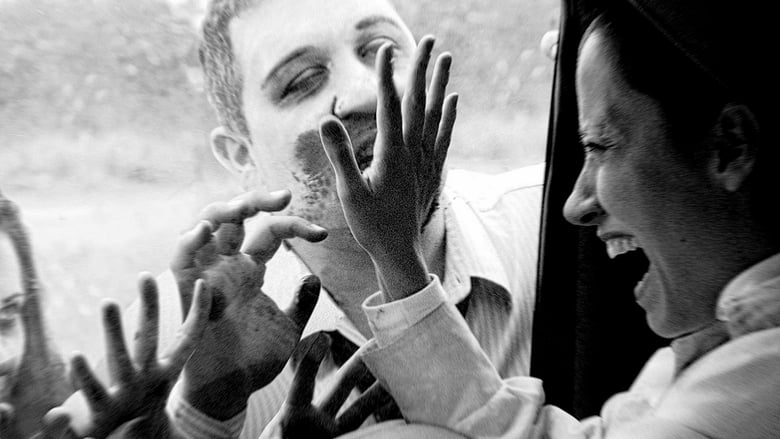Loading


Zombies in the Sugar Cane Field: The Documentary
Genres
Documentary
Overview
Tucumán, Argentina, 1965. Three years before George A. Romero's Night of the Living Dead was released, director Ofelio Linares Montt shot Zombies in the Sugar Cane Field, which turned out to be both a horror film and a political statement. It was a success in the US, but could not be shown in Argentina due to Juan Carlos Onganía's dictatorship, and was eventually lost. Writer and researcher Luciano Saracino embarks on the search for the origins of this cursed work.
Details
Budget
$0
Revenue
$0
Runtime
89 min
Release Date
2019-11-08
Status
Released
Original Language
Spanish
Vote Count
4
Vote Average
7.8
Cast
Meet the talented actors who bring the movie to life.
Isabel Sarli
Self - Actress
Luciano Saracino
Self - Researcher
Diego Trerotola
Self - Film Critic
Roger Koza
Self - Film Critic
Laura Casabé
Self - Filmmaker
Ramiro San Honorio
Self - Film Collector
César Legname
Ofelio Linares Montt
Mónica Audi Falú
Alicia Miranda
Juan Carlos Onganía
Self - Politician (archive footage)
George A. Romero
Self - Filmmaker (archive footage)
Similar Movies
Explore movies similar to this one that you might also enjoy.
7.1
Making 'The Shining'
Directed and edited by Stanley Kubrick's daughter Vivian Kubrick, this film offers a look behind the scenes during the making of The Shining.
1980-10-04 | en
0.0
A Pretty British Affair
Detailed interview with Michael Powell and Emeric Pressburger looking back at their long career as influential British film-makers and their unusual partnership. Includes clips from many of their films.
1981-08-14 | en
0.0
The Invisible Half: Luis García Berlanga's The Executioner
Documentary about Spanish director Luis García Berlanga's "The Executioner" (1963)
2012-02-25 | es
10.0
'In a Lonely Place' Revisited
Documentary about Nicholas Ray's film "In a Lonely Place" (1950).
2003-03-18 | en
0.0
The Creative Person: Satyajit Ray
In 1967, Canadian documentarian James Beveridge traveled to Kolkata to film director Satyajit Ray at work. The resulting program, produced for the American public television series “The Creative Person,” features interviews with Ray, several of his actors and crew members, and film critic Chidananda Das Gupta.
1967-01-01 | en
0.0
ZERNOV-PROJECT
Russian poet Egor Zernov turned out to be a project of several authors. The face of the project escaped from its creators. They are trying to find him.
2023-12-31 | ru
6.0
The Making of Europa
Documentary about the making of Lars von Trier's 1991 film.
1991-12-31 | en
0.0
In the Realm of the Senses: Recalling the Film
Documentary about the making of Nagisa Oshima's 1976 film.
2003-01-01 | fr
4.5
100 Years of the UFA
The intricate history of UFA, a film production company founded in 1917 that has survived the Weimar Republic, the Nazi regime, the Adenauer era and the many and tumultuous events of contemporary Germany, and has always been the epicenter of the German film industry.
2017-08-28 | de
0.0
Bernardo Bertolucci's Chinese Adventure
Documentary about the making of Italian film director Bernardo Bertolucci's The Last Emperor.
1986-12-31 | it
4.5
Faces of Death
A collection of death scenes, ranging from TV-material to home-made super-8 movies. The common factor is death by some means.
1978-11-10 | en
4.1
Farce of the Penguins
In this spoof of "March of the Penguins," nature footage of penguins near the South Pole gets a soundtrack of human voices. Carl and Jimmy, best friends, walk 70 miles to the mating grounds where the female penguins wait. The huddled masses of females - especially Melissa and Vicki - talk about males, mating, and what might happen this year. Carl, Jimmy, and the other males make the long trek talking about food, fornication and flatulence. Until this year, Carl's sex life has been dismal, but he falls hard for Melissa. She seems to like him. A crisis develops when Jimmy comes upon something soft in the dark. Can friends forgive? Does parenthood await Carl and Melissa?
2006-12-01 | en
0.0
Prince of the City: The Real Story
The true story behind the Prince of the City.
2007-01-01 | en
0.0
Signs of Vigorous Life: The New German Cinema
BBC documentary about the rise of the New German Cinema and several of its most important figures.
1976-12-02 | en
7.0
I Invite You to My Execution
As Russian writer Boris Pasternak (1890-1960) thinks it is impossible that his novel Doctor Zhivago is published in the Soviet Union, because it supposedly shows a critical view of the October Revolution, he decides to smuggle several copies of the manuscript out of the country. It is first published in 1957 in Italia and the author receives the Nobel Prize in Literature in 1958, which has consequences.
2019-10-30 | fr
5.0
Cosmetic Criminals
A short mockumentary detailing the rise of intergenerational cosmetic theft through the eyes of an affected family.
2024-01-07 | en
6.7
Counter Shot: Departure of the Filmmakers
Documentary about filmmakers of the New German Cinema who were members of the legendary Filmverlag für Autoren (Film Publishing House for Authors). Among them are Werner Herzog, Rainer Werner Fassbinder, and Wim Wenders.
2008-02-14 | de
4.0
At the Coliseum Deluxe
A feature length documentary about Australian popular entertainment across 150 years; of Skating and Dancing, Vaudeville and Moving Pictures.
2019-11-03 | en
5.2
Ciné regards: Jacques Tourneur
Interview with film director Jacques Tourneur which first appeared on the French television series "Ciné regards".
1978-01-01 | fr
9.0
The Rumba Kings
In the fifties, when the future Democratic Republic of Congo was still a Belgian colony, an entire generation of musicians fused traditional African tunes with Afro-Cuban music to create the electrifying Congolese rumba, a style that conquered the entire continent thanks to an infectious rhythm, captivating guitar sounds and smooth vocals.
2021-05-06 | en